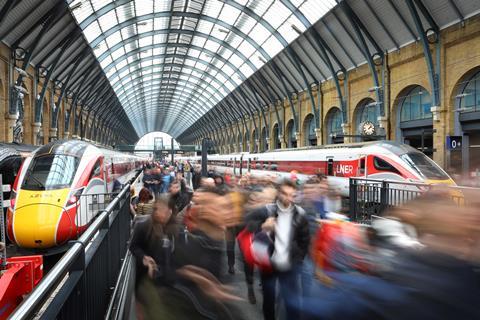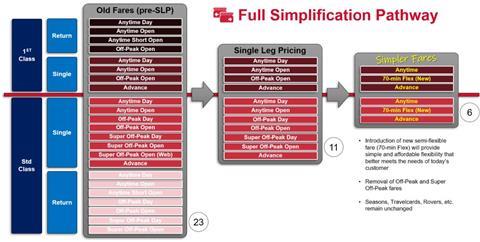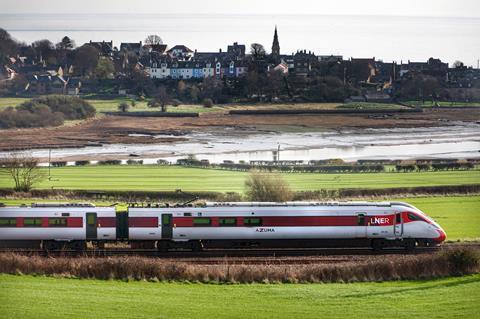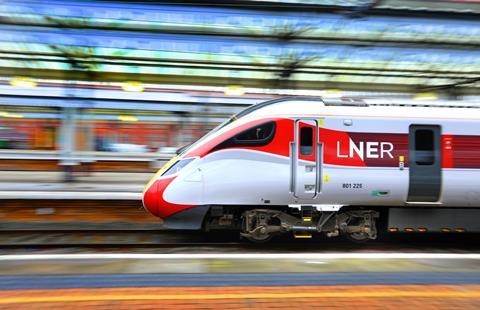
UK: East Coast Main Line inter-city operator LNER has launched a pilot scheme which scraps Off-Peak and Super Off-Peak fares but introduces a semi-flexible ticket which can be used up to 70 min before or after a passenger’s booked train.
The trial covers travel on LNER services between London King’s Cross and Newcastle, between London and Berwick-upon-Tweed and between London and Edinburgh.
The new trial builds on the roll out of single-leg pricing and abolition of return fares for all station pairs priced by LNER. The new ticket types went on sale on January 16 for travel from February 5.
Three tickets

Only three types of ticket will now be offered on the pilot routes:
Advance tickets will be the cheapest, and only valid for a specific train.
The new 70min Flex tickets will be more expensive, but can be used to travel on other LNER services up to 70 min before or after their original booked journey. Passengers will not need to rebook to use a different train, but are advised to reserve a seat, which will not require paying an extra fee. Users will also be able to change their ticket to travel at another time outside the 140 min window by paying an administration fee and any price difference.
Anytime tickets are fully flexible, can be used at any time of day and permit a break of journey.
Advance and the new 70min Flex tickets will be dynamically priced, as the Advance tickets already are. LNER said they would never cost more than the Anytime fare, which is capped by the government.
The existing Off-Peak and Super Off-Peak flexible fares which are valid on any train between specified times will be removed from February 5; LNER said these currently account for 11% of journeys covered by the pilot.
The previous fare structure remains in place for all other journeys outside the pilot routes.
Two-year pilot

If the two-year pilot is deemed successful, a wider roll-out is planned on LNER routes.
Managing Director David Horne said ‘this exciting new pilot is the next step in our plans to overhaul complicated and outdated ticketing options and we look forward to hearing feedback’.
The operator told Rail Business UK it understood the importance of maintaining a walk-up railway, and had no plans to move to a reservation-only system.
Responses

The trial required Department for Transport approval. Rail Minister Huw Merriman commented that ‘we are delivering on our commitment to reform the railways, working with operators to provide passengers with simpler and more flexible tickets that better suit their needs’.
Alex Robertson, Chief Executive of independent watchdog Transport Focus, described ‘the plan to trial demand-based pricing on some LNER routes’ as ‘a radical change for passengers. Transport Focus strongly supports fares reform and it is right to trial new ideas to see if they work. We look forward to hearing how the trial progresses and will be monitoring that it does indeed deliver better value for money tickets for passengers.’
Posting on X (Twitter) rail travel expert Mark Smith, ‘the Man in Seat 61’, commented that the 70min Flex ticket represented a significant reduction in flexibility compared to an Off-Peak ticket, which is refundable, can be used with any train operator and via any permitted route, and has a fixed price.
Smith said the model ‘might work (just!) on very long runs such as London - Scotland, where (a) the main competitor is air and (b) people are prepared to work their plans around the train operator’s needs and requirements, rather than the other way round’, but he said it would be ‘unlikely to work where people need mobility’, and a different fare structure would be needed for shorter distance travel.



